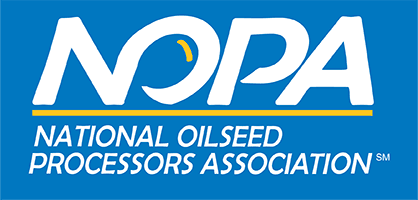NOPA to CARB: Vegetable Oil Cap Would Lead to Unintended Consequences
NOPA calls for extended comment period to fully vet impact of proposed vegetable oil cap
WASHINGTON, Sept. 12 – The National Oilseed Processors Association (NOPA) today reiterated the organization’s calls for the California Air Resources Board (CARB) to follow its own modeling and conclusions and reject the imposition of a vegetable oil cap as part of the state’s Low Carbon Fuel Standard (LCFS).
In comments delivered before a joint meeting between CARB and the Assembly Bill 32 Environmental Justice Advisory Committee (EJAC), NOPA representative John Wenger highlighted the negative effects of such a cap, including higher consumer fuel prices and worsened air quality.
“Artificially restricting biofuels during our energy transition is not going to speed up EV deployment, rather it is simply going to create a further reliance on fossil fuels. It is disappointing that the environmental justice community supports a restriction on biofuels which will negatively impact air quality and ultimately harm disadvantaged communities,” Wenger said.
NOPA has actively engaged with CARB throughout the rulemaking process, consistently urging the adoption of a targeted, risk-based approach to implementing sustainability criteria under the LCFS and supporting the role of agriculture in diversifying the fuel supply through more sustainable feedstocks.
Read Prepared Comments: Joint Meeting of the California Air Resources Board and the Assembly Bill 32 Environmental Justice Advisory Committee
Previous NOPA Comments to CARB:
- Proposed Low Carbon Fuel Standard 15-Day Changes (August 27, 2024)
- Proposed Low Carbon Fuel Standard Amendments Public Workshop(May 10, 2024)
- Proposed Low Carbon Fuel Standard Amendments(Feb. 20, 2024)
###
Organized in 1930, the National Oilseed Processors Association (NOPA) represents the U.S. soybean, canola, flaxseed, safflower seed, and sunflower seed-crushing industries. NOPA’s membership is engaged in the processing of oilseeds for meal and oil that are utilized in the manufacturing of food, feed, renewable fuels, and industrial products. NOPA’s 16 member companies operate five softseed and 64 solvent extraction plants across 21 states, crushing approximately 97% of all soybeans processed in the United States, the equivalent to more than 2 billion bushels annually. More information at www.NOPA.org

